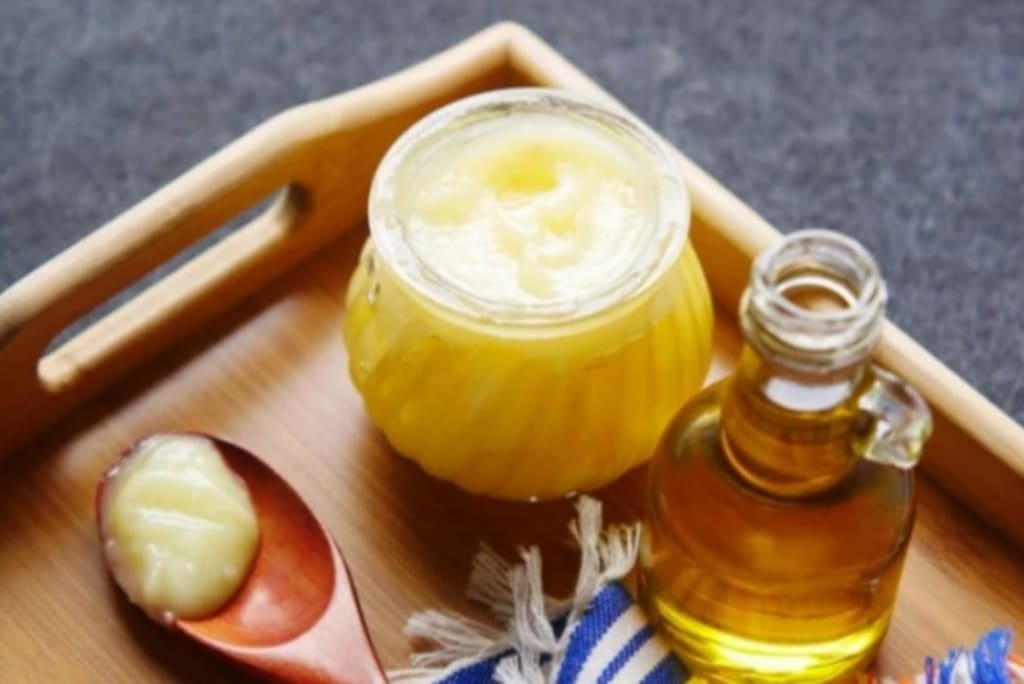Should Ghee Be Avoided If You Want to Improve Your HDL Levels If You Have High Cholesterol? Here is the truth!
Within the context of Indian households, ghee is an essential substance. Does it have the potential to affect cholesterol levels? Is it necessary to reduce its size? So, here is what the expert has to say!

Ghee, which has been a pillar of Indian cuisine for generations, is lauded for the opulent flavour it imparts as well as the health advantages it offers when used in moderation. Ghee is a key component that improves the taste of both ordinary dishes and festival foods. It can be found in a wide variety of dishes, including rotis, dals, and curries, as well as festive sweets such as laddoos and halwa.
The Health Benefits of Ghee: A Nutritional Powerhouse
There is a high concentration of important fatty acids in ghee, including omega-3 and omega-6. These fatty acids are required for the preservation of the integrity of cell membranes and the enhancement of cognitive function. The consumption of these fats may be beneficial in reducing inflammation and improving general health.
It is possible that the immune system can be strengthened by the components of ghee, such as butyric acid, which contribute to the production of immune cells in the digestive tract.
Linolenic fatty acid, also known as omega-3 fatty acid, is another component of ghee. It is believed to assist in the management of inflammation, and as a result, it may be useful to one's overall health.
According to Ayurveda, ghee is considered a sattvic diet, which means that it assists one in attaining mental and physical cleanliness. Ghee occupies a highly crucial place in Ayurveda. In accordance with Ayurvedic principles, ghee is believed to facilitate the process of digestion by promoting the release of digestive enzymes. It is frequently employed as a method for the administration of herbal remedies. Additionally, it is known to boost ojas, which is a term that refers to the vital essence of the body and is associated with increased vigour and protection against illnesses. In addition, ghee is a source of vital vitamins and minerals, including vitamins A, D, E, and K, as well as minerals such as calcium and phosphorus. On the other hand, despite the fact that it may have some positive effects on health, ghee is still a source of cholesterol and saturated fat, which in turn raises worries about its widespread and everyday consumption.
Ghee in a Heart-Healthy Diet: Moderation or Elimination?
It is impossible to entirely eliminate ghee from Indian houses, as stated by Dr. Bhavna Sharma, who is the Head of the Nutrition Science Department of ITC Limited. Ghee is a crucial component of Indian households. Therefore, one of the numerous strategies to reduce the amount of ghee that one consumes daily is to take measures to manage the size of one's portions. One further method to take pleasure in it is to switch to other products that are "better for you," such as ghee that has been modified to have reduced cholesterol. The development of food technology, such as the use of a method known as "low-cholesterol adsorption" during the manufacturing process, has provided customers with an alternative to conventional ghee that does not compromise on either its flavour or its health advantages. As a result of this technological innovation, manufacturers have been able to dramatically lower the amount of cholesterol in their products without sacrificing the product's rich flavour. By adopting it in moderation and straightforward ways, such as the following, consumers may now experience the rich flavour and nutritional advantages of ghee that is reduced in cholesterol at the same time.
It is utilised in a variety of meals, including rotis, dals, and curries. In spite of the fact that ghee has been used for a very long time in India and bears a significant cultural value, there are some people who are concerned about their health who are sceptical about it because of the large amount of saturated fat and cholesterol that it contains. Having said that, ghee is a source of a number of vital nutrients that may be beneficial to one's health, including the following:
• By the addition of this ingredient, festive sweets like laddoos, halwa, and jalebis will have an additional layer of taste.
• The use of it in dishes as an alternative to butter.
• Increasing their energy levels by adding one teaspoon of ghee to their daily cup of coffee or tea.
The substantial reduction in cholesterol levels, together with the preservation of the same high-quality flavour, fragrance, and nutritional advantages as ordinary ghee, makes it possible for folks to enjoy ghee as a component of a diet that is both diverse and balanced.
About the Creator
Ms. Jahan
A writer with a passion for storytelling, has written in various genres, including articles, short stories, and reflective essays to share their musings and creative adventures.
Enjoyed the story? Support the Creator.
Subscribe for free to receive all their stories in your feed. You could also pledge your support or give them a one-off tip, letting them know you appreciate their work.






Comments (1)
Hello! be the part of my community